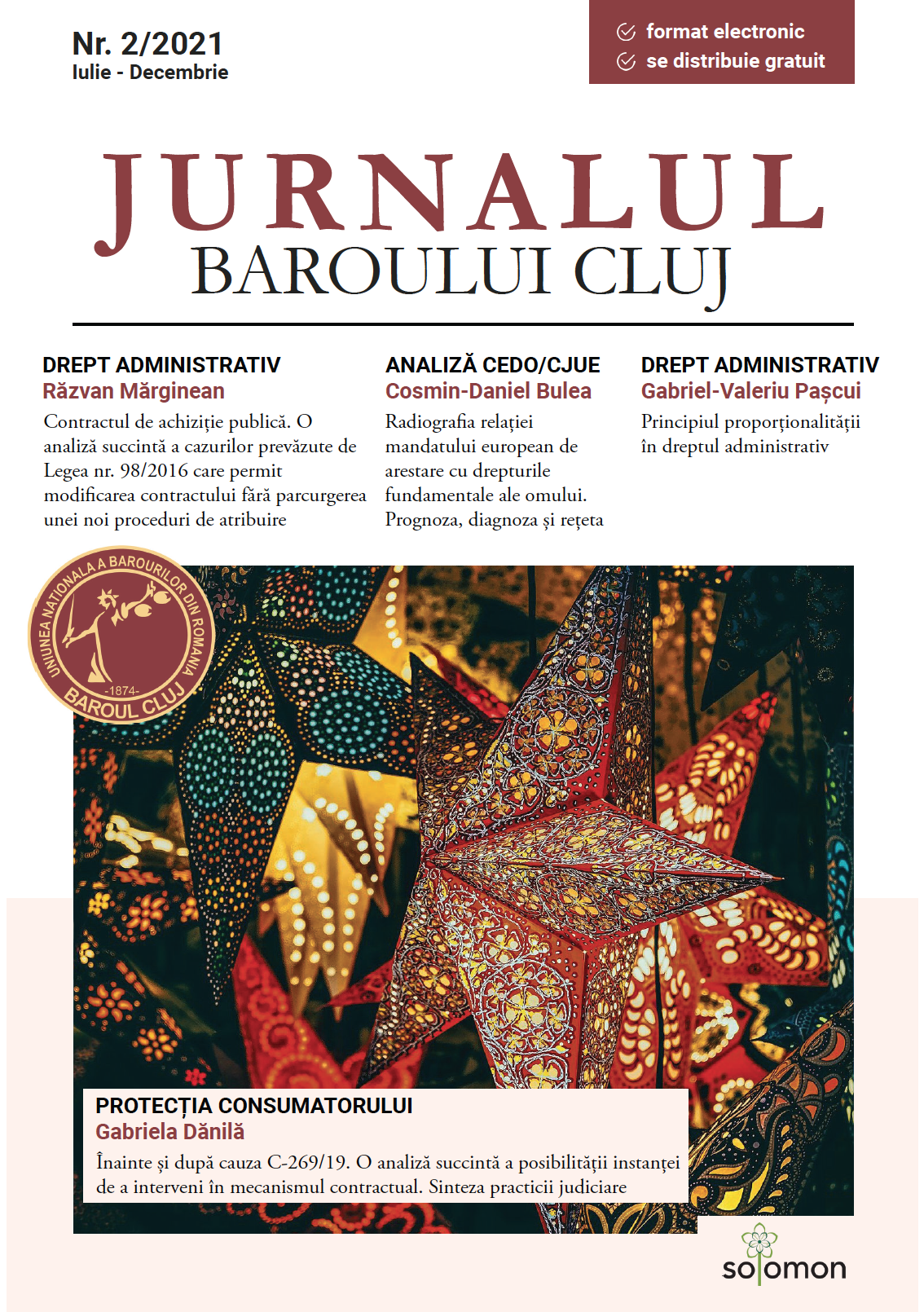Radiografia relației mandatului european de arestare cu drepturile fundamentale ale omului. Prognoza, diagnoza și rețeta
Radiography of the relationship of the European arrest warranty with fundamental human rights. Forecast, diagnosis, and recipe
Author(s): Cosmin-Daniel BuleaSubject(s): Law, Constitution, Jurisprudence, Criminal Law, Human Rights and Humanitarian Law, EU-Legislation
Published by: Editura Solomon
Keywords: European arrest warrant; fundamental human rights; European judicial cooperation in criminal matters; the principle of mutual trust; the principle of mutual recognition; issuing judicial authority;
Summary/Abstract: This article is intended to be an x-ray of the main instrument of judicial cooperation in criminal matters – the European arrest warrant. Although it was considered a completely innovative mechanism, in a paradigm of inefficient judicial cooperation, its operability created from the very beginning the premises of a tense relationship with fundamental rights. This relationship was, moreover, a risk predicted and assumed by the European legislator. The evolution of the substantive and procedural criminal law systems of the Member States and, at the same time, the continuous metamorphosis of the challenges to which European judicial cooperation in criminal matters has been called upon to respond, would reveal the true nuances of the impact of the two major constants of European criminal law: trust and mutual recognition, respectively the system of guarantees of fundamental rights.
Journal: Jurnalul Baroului Cluj
- Issue Year: 2021
- Issue No: 2
- Page Range: 55-72
- Page Count: 18
- Language: Romanian

